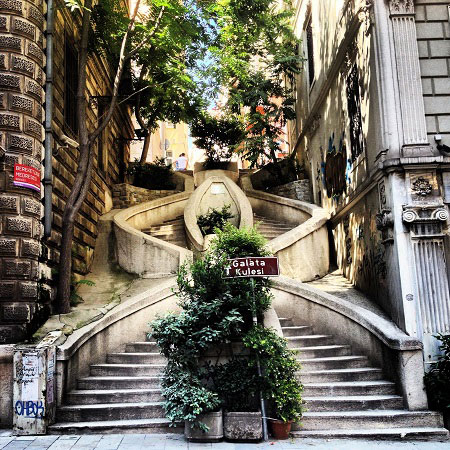"BELLA'S STORY" MOVIE PREMIERE - SUNDAY, JANUARY 31
Event
- When:
- Sun, 31. January 2021, 18:00
- Category:
- Agenda
Description
The Quincentennial Foundation Museum of Turkish Jews is organizing a very special event on Zoom on Sunday, January 31 at 18:00. The museum will be the scene of the premiere of the movie "Bella’s Story", which sheds light on Bella Eskenazi's life, in the week when she celebrates her 98th birthday. Bella and director Banu Yalkut Breddermann, who inspired Orhan Veli's famous poem "I Can't Tell", will have a short conversation before the 100-minute documentary.
Bella's story reveals a uniquely personal account of life in 20th century Turkey; a time when cities like Istanbul and Ankara were a melting pot of cultures and a haven for Jewish intellectuals fleeing persecution. Bella quickly became involved with the cultural and political avant-garde of the time, sharing intimate friendships with famous Turkish poet Orhan Veli, esteemed writer Sabahattin Ali, and much-revered songwriter, poet and author of Turkish folk literature Asik Veysel. Also, a beloved teacher at the revolutionary Village Institute in Hasanoğlan, Bella was at the heart of an exciting time that would shape the history of Modern Turkey.
The documentary looks at Turkey, from the perspective of secular Jewish woman Bella Eskenazi, who was born in Istanbul in 1923 as the third daughter of a Sephardic Jewish family. Her birth also coincided with the foundation of the Turkish Republic.The multicultural environment of the Ottoman times had not been totally past as yet. She grew up in this transition period that gave her the possibility of enjoying the advantages of a multicultural society and learning several languages. Through her elder sister's husband Erol Güney, an esteemed intellectual, she met some of the well known Turkish intellectuals and artists. Due to her vast knowledge of the languages, she also contributed to the “Turkish Renaissance” that took place during the first years of the Turkish Republic, when Turkish poetry was at its peak, education reform was taking place, and great curiosity reigned for all kinds of cultural exchanges. On the other hand “Turkish Renaissance” that started in 1940 was to be overshadowed soon. In 1942 “Wealth Tax” mainly levied on non-Muslim citizens that led to the liquidation of non-Muslim-owned firms, to help “nationalize” the Turkish economy. The education reform ended by the closing of the “Village Institutes” in 1954. It was followed by the pogroms against non-Muslim citizens in 1955 with the aim of nationalization and homogenization of the Turkish Republic.
Bella has lived through all of these events, and yet she never loses affection and hope for her country.
The documentary aims to provide an alternative point of view to religious and political discussions stemming from ethnic origin and contribute to the struggle against the rise of anti-Semitism.
* Participation is free of charge via Zoom.
* Sunday, January 31 at 18:00
* For reservation: This email address is being protected from spambots. You need JavaScript enabled to view it.
The donation by the friends of the museum will be appreciated for the survival of the museum whose income sources were limited during the pandemic.





